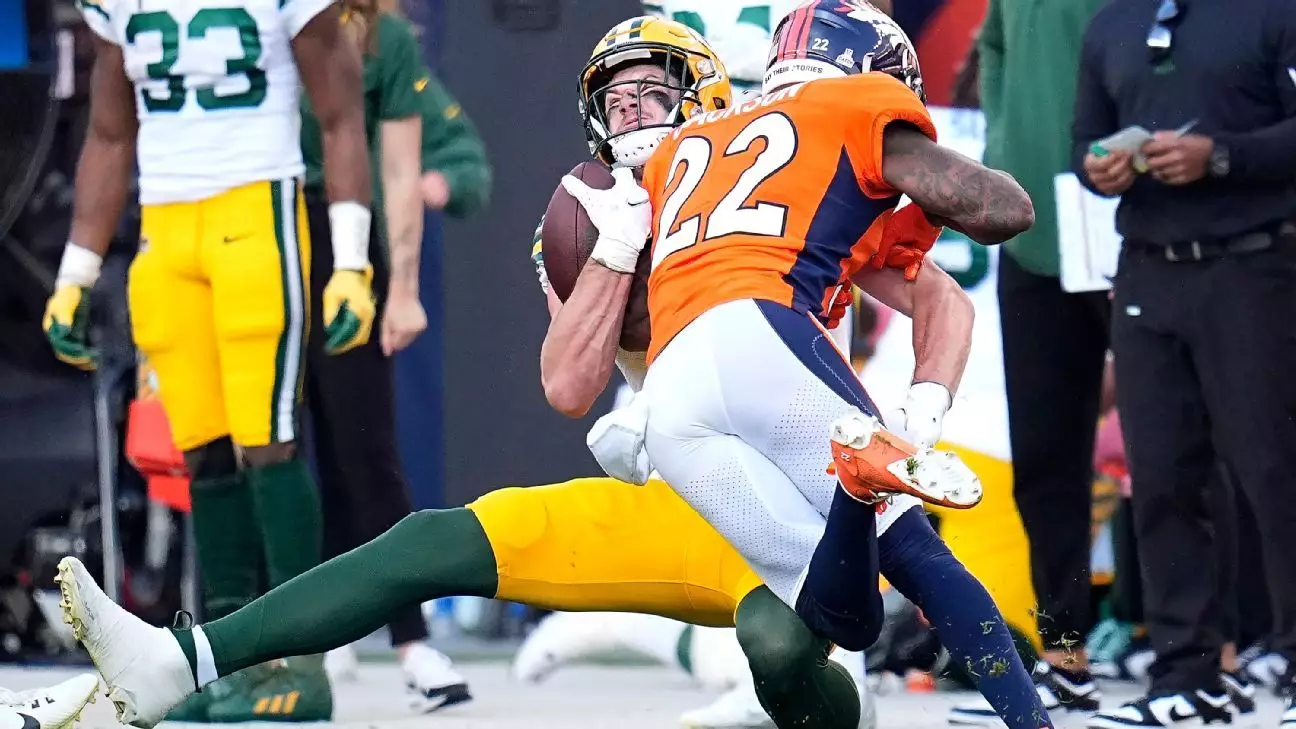The NFL has recently handed down a four-game suspension to Denver Broncos safety Kareem Jackson for repeated violations of unnecessary roughness rules. This decision has sparked controversy and debate within the football community. Jackson is currently appealing his suspension, hoping to contest the ruling. If his suspension stands after the appeal, Jackson will lose a significant amount of salary, amounting to $558,889.
Jackson’s suspension stems from his ejection during the Broncos’ game against the Green Bay Packers. In the fourth quarter, he delivered a sideline hit on Packers tight end Luke Musgrave, resulting in his removal from the game. This was the second time Jackson had been ejected this season due to an illegal hit. The NFL Vice President of Football Operations, Jon Runyan, criticized Jackson’s actions in a letter, stating that he had the opportunity to avoid the head/neck area contact but chose not to.
Runyan also highlighted that Jackson had a history of violating player-safety rules. Prior to the Green Bay incident, Jackson had already been fined four times this season for unnecessary roughness, totaling $89,670. Furthermore, he was previously ejected during a Week 2 loss against the Washington Commanders for a hit on tight end Logan Thomas. These repeated violations of player-safety rules contributed to the severity of his suspension.
If Jackson’s suspension stands, he will miss crucial games against the Kansas City Chiefs, Buffalo Bills, Minnesota Vikings, and Cleveland Browns. These opponents pose significant challenges, and Jackson’s absence could potentially affect the Broncos’ performance. However, the suspension does allow for his return to the active roster on Monday, November 27.
Opinions regarding Jackson’s suspension vary among players, coaches, and observers. Some Broncos players argue that Jackson’s hit on Musgrave was not as severe as portrayed. They assert that he led with his shoulder, making contact slightly below the head and neck area. Meanwhile, players and coaches from the Green Bay Packers expressed their disapproval of Jackson’s actions, with their sideline erupting in shouts directed at him.
Broncos coach Sean Payton voiced his support for Jackson, emphasizing his understanding of the player’s character and intentions. Payton believes that Jackson is committed to playing the game correctly and that the suspension might reflect a lack of clarity in the rules surrounding player safety. He recognizes the challenges faced by both officials and players in interpreting and enforcing these rules.
Jackson’s suspension stands as the longest punishment for violating player-safety rules since 2019 when Myles Garrett, a defensive end for the Cleveland Browns, was suspended indefinitely for hitting Mason Rudolph, the Pittsburgh Steelers’ quarterback, with his helmet. Garrett was ultimately suspended for six games and reinstated in February 2020. Additionally, in 2019, Raiders linebacker Vontaze Burfict received a 12-game suspension for a helmet-to-helmet hit on Colts tight end Jack Doyle. The NFL cited Burfict’s repeated unnecessary roughness violations as the primary reason for the severity of the punishment.
Kareem Jackson’s suspension has raised significant questions and debates concerning the enforcement of player-safety rules within the NFL. While some argue that Jackson’s hit was not as severe as claimed, the history of his violations suggests a pattern worthy of punishment. As football strives to strike a balance between physicality and player safety, it is crucial for both players and officials to have a clear understanding of the rules. The outcome of Jackson’s appeal will undoubtedly shed further light on this ongoing issue.


Leave a Reply